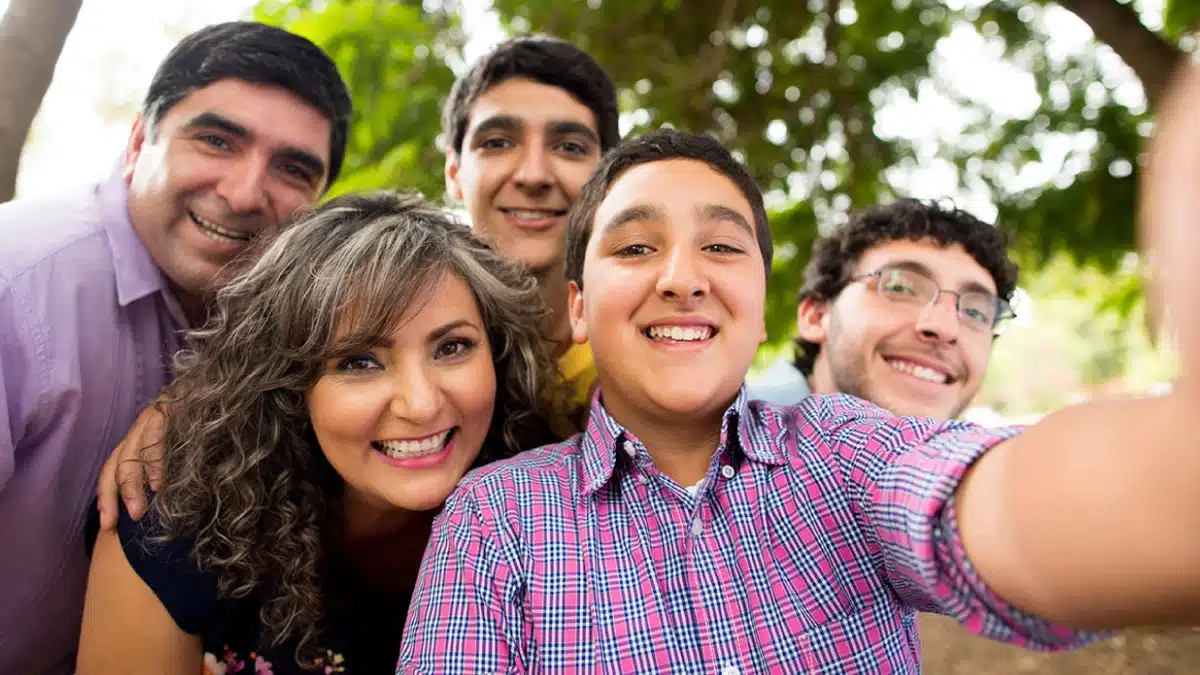Families dealing with addiction often develop specific roles to cope with the challenges it brings. Parents need to learn about these roles so that they can prevent their teenagers from falling into substance abuse.
This approach enables teenagers to receive effective support, undergo a treatment process, and experience healing within the family. This article explores the various family roles that develop in addiction and how families can support each other better to work toward healing.
Key Takeaways
Six distinct roles emerge when discussing addiction, each serving a specific purpose. Here’s what the article entails:
- Family roles in addiction refer to behavior patterns of members coping with its impact.
- Each member may adopt a role to maintain stability or manage their emotions.
- The challenges posed by addiction often lead the caretaker or hero in the family to take on excessive responsibilities.
- Family therapy is vital for addressing addiction as it recognizes the impact of substance use disorder on the family.
Our teen treatment center offers comprehensive support and care tailored specifically to the unique needs of adolescents struggling with addiction. Call us at (845) 479-6888 to learn about our services.
Addiction’s Impact On Families
Addiction affects not just the teens but the entire family unit. It brings turmoil and strains relationships. Teens experience heightened stress, conflicts, and emotional turmoil. Financial difficulties and legal issues often arise. Trust within the family can erode, leading to isolation and resentment in various ways.
Children may suffer neglect or abuse. Mental health issues, such as anxiety and depression, commonly occur. Support networks may fracture, leaving members of the family feeling isolated. Grasping the broad impact of addiction is vital to effective healing and intervention for family problems.
Role Of Family In Addiction Dynamics
Families play a pivotal role in addiction dynamics. They often develop patterns of behavior to cope with the challenges addiction presents. These roles may include enabling, scapegoating, or withdrawing.
Each member may adopt a role to maintain stability or manage their emotions. Effective communication, boundary setting, and seeking professional help are vital steps in addressing addiction dynamics and fostering a healthier family dynamic.
The Six Family Roles In Addiction
In families dealing with addiction, six distinct roles often emerge to cope with the challenges it brings. These roles include the Enabler, Hero, Scapegoat, Lost Child, Mascot, and Caregiver. Each role serves a specific function within the family dynamic, whether it’s shielding the person with an addiction from consequences, striving for perfection, or using humor to diffuse tension. Learning family roles is vital in identifying how addiction is perpetuated and in promoting healthier dynamics.
Explanation Of The Family Role Concept
The family role concept in addiction dynamics refers to the patterns of behavior that family members adopt to cope with the impact of addiction. Each role serves a purpose in maintaining stability or managing emotions within the family unit. For example, the Enabler may enable the person’s behavior by making excuses or covering up consequences. The Hero may strive for perfection to compensate for family dysfunction.
How Can Family Therapy Address These Roles?
Family therapy is integral in addressing substance use disorder as it recognizes addiction as a family disease, not just an individual’s problem. Alcohol addiction often leads to dysfunctional family roles, exacerbating negative effects on family dynamics.
Therapy and support groups provide an environment where the whole family can explore their roles and relationships, aiding recovery. They help members understand how their actions affect each other and teach coping mechanisms for dealing with challenges both within the family and in the outside world.
How Family Therapy Helps Each Role
Family therapy offers support to each family member affected by addiction, including the eldest child, who may feel neglected or overwhelmed by negative attention. It addresses mental health disorders that may arise within the family and helps restore balance to the family structure.
For the Lost Child, therapy provides a safe space to express feelings of isolation and address traumatic experiences. By involving the whole family, therapy breaks the cycle of addiction and fosters healthier relationships and communication.
Frequently Asked Questions (FAQ)
What is the role of the family in drug abuse?
Family plays a crucial role in preventing and addressing drug abuse. Healthy family relationships, open communication, and support can reduce the risk of substance abuse among teens. Parents should educate themselves and their children about the dangers of drugs.
Creating a supportive environment where teens feel safe to discuss their problems can prevent substance abuse. Families should also seek professional help if a member struggles with addiction.
Early intervention and family therapy can help overcome challenges related to drug abuse. Involving the entire family in recovery increases the chances of long-term success.
How can understanding these six family roles help in dealing with a family member’s addiction?
Understanding family roles like Enabler, Hero, Scapegoat, Mascot, Lost Child, and Mascot helps address addiction. Enablers unintentionally support addictive behavior. Heroes cover up the problem to maintain a family image.
Scapegoats often get blamed for family issues. Mascots distract from the addiction with humor. Lost children withdraw to avoid conflict.
Identifying these roles helps families break dysfunctional patterns and support the addicted family member effectively. Parents can work together to shift roles towards healthier dynamics, fostering open communication and seeking professional help for their teens when needed.
Empowering Teen Recovery
At our teen treatment center, we propel adolescents toward enduring recovery through a holistic approach.
Our residential program provides a supportive environment where teens receive individual and group therapy sessions, fostering personal growth and emotional healing. Educational workshops equip teens with essential life skills, while recreational activities promote physical wellness and social engagement.
Our dedicated staff helps teens achieve sobriety and lasting wellness, regardless of their substance of choice. Dial (845) 479-6888 to learn more about the transformative journey for your teen with our comprehensive services.
